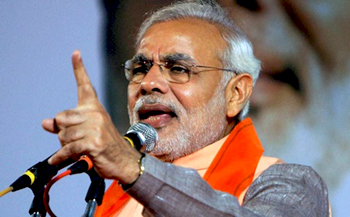New Delhi, Feb 4: Uttar Pradesh Chief Minister Yogi Adityanath on Monday accused Arvind Kejriwal of having a "partnership" with Pakistan and appealed to the people in Delhi to not vote for the AAP chief as it will make Pakistan happy.
Ramping up his attack on the Shaheen Bagh protest, Adityanath said that the protest against the Citizenship Amendment Act (CAA) is merely an excuse for people to vent their anger against the scrapping of Article 370.
"You must have seen their partnership on 370. Arvind Kejriwal used to speak in the same voice as Imran Khan on Article 370. You must have heard it.
"Now when elections are taking place in Delhi, who is speaking in favour of Arvind Kejriwal? It is the ministers of Pakistan. They are aware that Kejriwal is feeding 'biryani to protesters at Shaheen Bagh'," he said, referring to Pakistan minister Fawad Chaudhry's tweet asking Indians to defeat Prime Minister Narendra Modi.
Adityanath addressed three rallies on Monday in the national capital ahead of assembly elections.
"Will Pakistan decide who Indians should vote for. If voting for Kejriwal will make Pakistan happy, should it be done," he asked at a rally in Mehrauli.
Adityanath said his Delhi counterpart Kejriwal has become a "toy in the hands of anti-social and anti-India elements".
Addressing a rally in Vikaspuri in west Delhi, he said that Kejriwal is not bothered about key issues such as providing clean drinking water but is concerned about Shaheen Bagh, the anti-citizenship amendment act protest site.
At another rally in Uttam Nagar in west Delhi, Adityanath said Kejriwal has played with the emotions of the people of Delhi for the last five years.
"He obstructed the development of Delhi. And knowingly and unknowingly, he became a toy in the hands of anti-social and anti-India elements," Adityanath said.
The protest at Shaheen Bagh, he said, has disrupted traffic across the capital.
"A guest with an appointment to meet him at 9.30 am could only reach at 11. He told me he had left as early as 7 am but got stuck because of the traffic in Shaheen Bagh," he said.
The Uttar Pradesh chief minister also slammed Kejriwal for "sympathising" with elements who he said gave anti-India slogans in Jawaharlal Nehru University.





Comments
What are the benefits of taking hashish?
Look into my website; seattle marijuana stores locations (1000islandsregion.com: http://1000islandsregion.com/__media__/js/netsoltrademark.php?d=recreat…)
You specified, \Material products offer us a short-term happiness sugar high\"We must remember that if one continues to take pleasure in the brief sugar highs,
one will end up with DiaBETes.If you re-arrange the letters
a little you wind up in financial obligation (time
debt, monetary debt and relationship financial obligation).
LikeLike
My homepage law group: http://www.google.com"
Hi my friend! I wish to say that this post is amazing, great written and come with approximately all significant
infos. I would like to see extra posts like this .
Feel free to visit my web blog; century 21 real estate: http://www.google.com
Add new comment